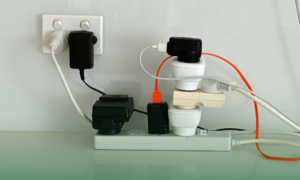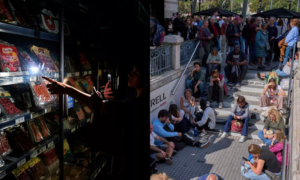More than 50 per cent of new global car sales will be electric by 2040, new Bloomberg research shows. And solar charging stations will be needed to fuel them.
Lithium battery prices are also predicted to fall a staggering 70 per cent by 2030, data reveals.
Electric cars will subsequently be cheaper than gas engines by 2024. And homes needing to charge multiple cars could face almost double the average electricity use per day.
As electric vehicles (EVs) gain mass market appeal, more than eight million barrels of fuel could be displaced daily by 2040.
EVs currently make up 1 per cent of worldwide car sales. This should rise to 54 per cent of new cars globally by 2040.
Solar charging stations make homes EV ready
Spectacular growth in the electric car market means new homes need to be ready for the EV revolution.

Home buyers are therefore looking for homes with personal charging stations and solar panels already installed.
Dedicated charging points, like the Schneider Smart Wallbox, offer speed and efficiency, the West Australian reports. Standard power points can in fact take up 20 hours to fully charge a larger battery.
However, households with solar panels and home battery storage also have a major head start when it comes to charging electric vehicles on the premises.
According to Australia’s Electric Vehicle Council, car owners can charge their EVs from home solar panel systems for little or even no cost. Installation of solar storage batteries means cars can even be charged overnight.
Charge your EV at home during blackouts
Solar power systems with battery storage like the Tesla Powerwall or sonnenFlat allow EVs to be charged at home cheaply and conveniently. Cars can be charged any time of day or night, even during a blackout.
As the West Australian reports, the Gemtek Group says solar and battery storage can also be combined with the latest smart technology to offset the cost of EV charging.














































